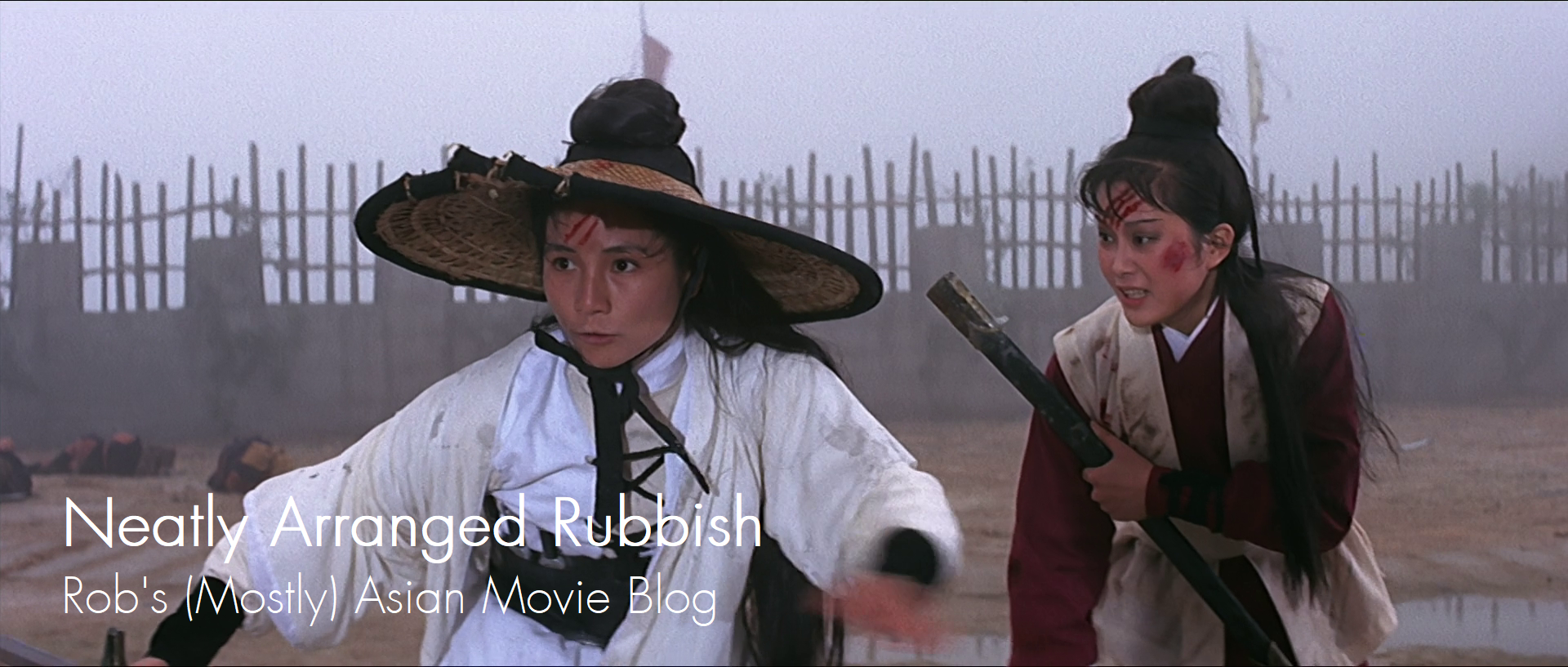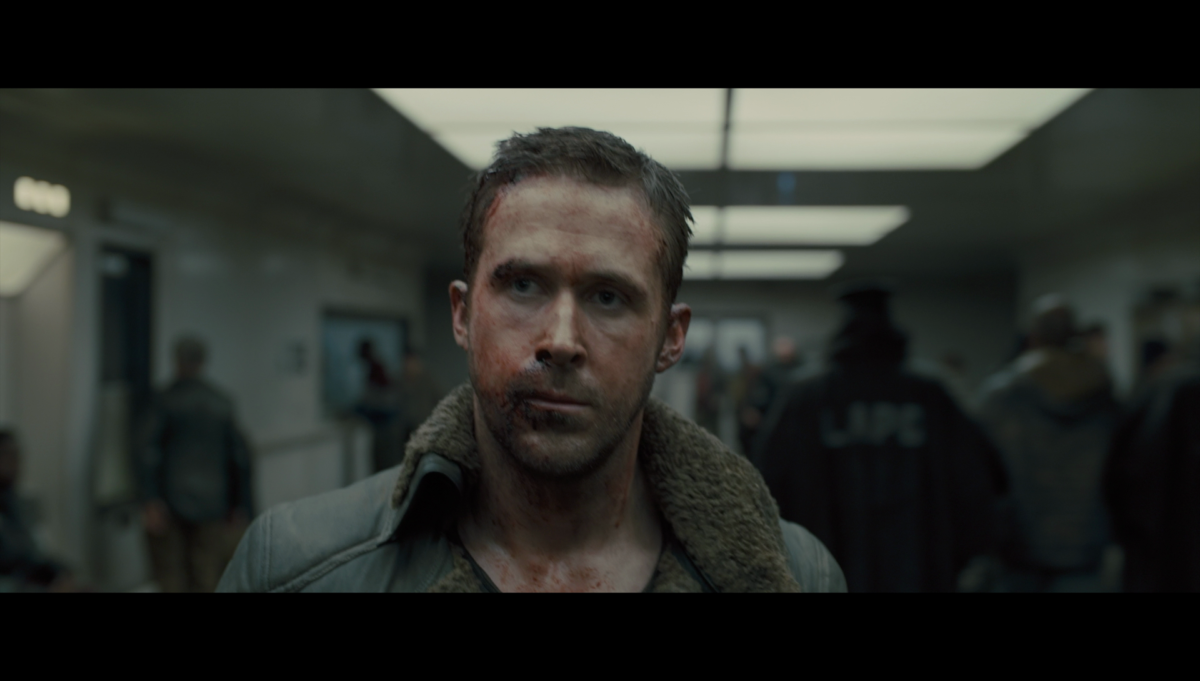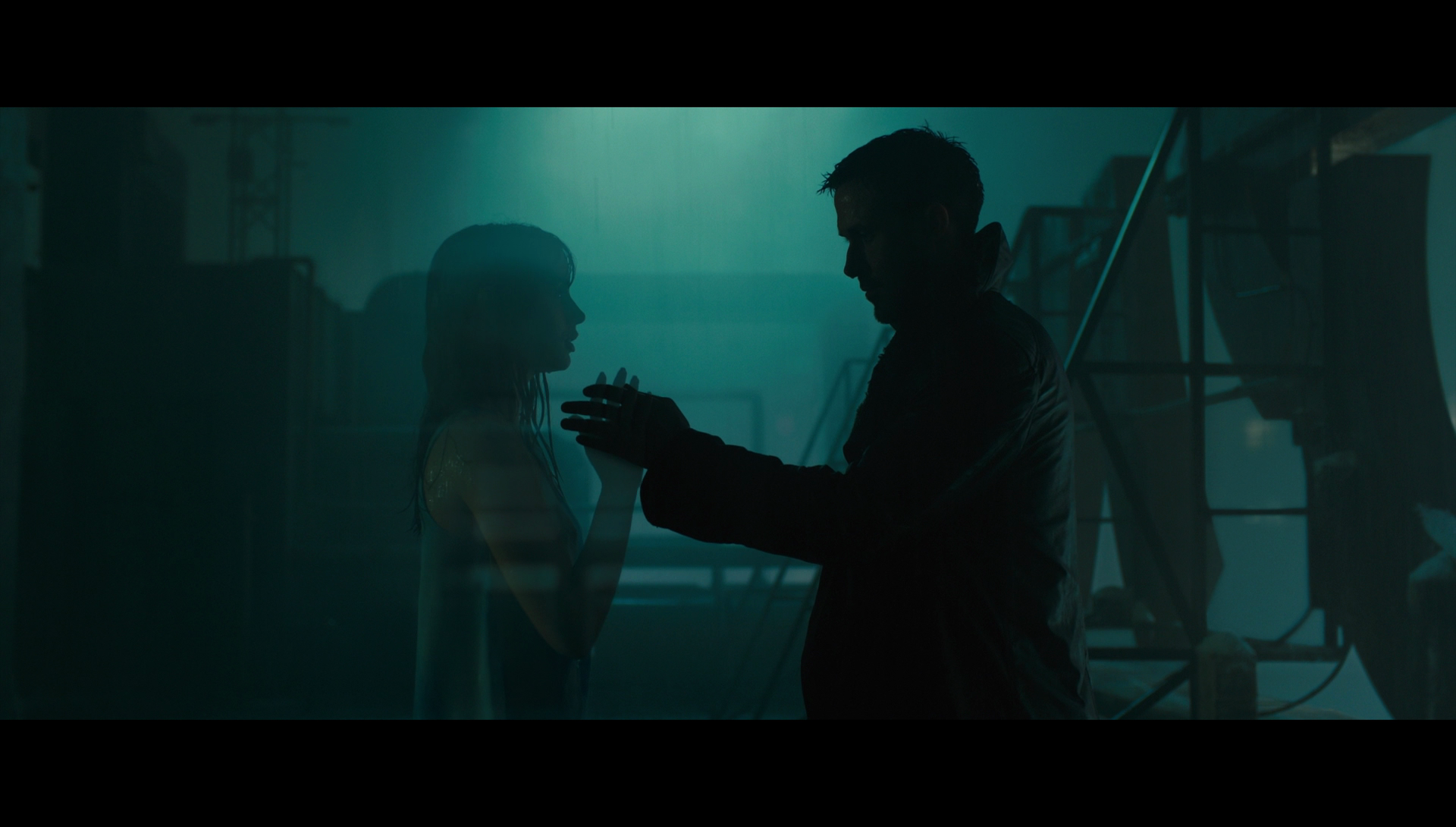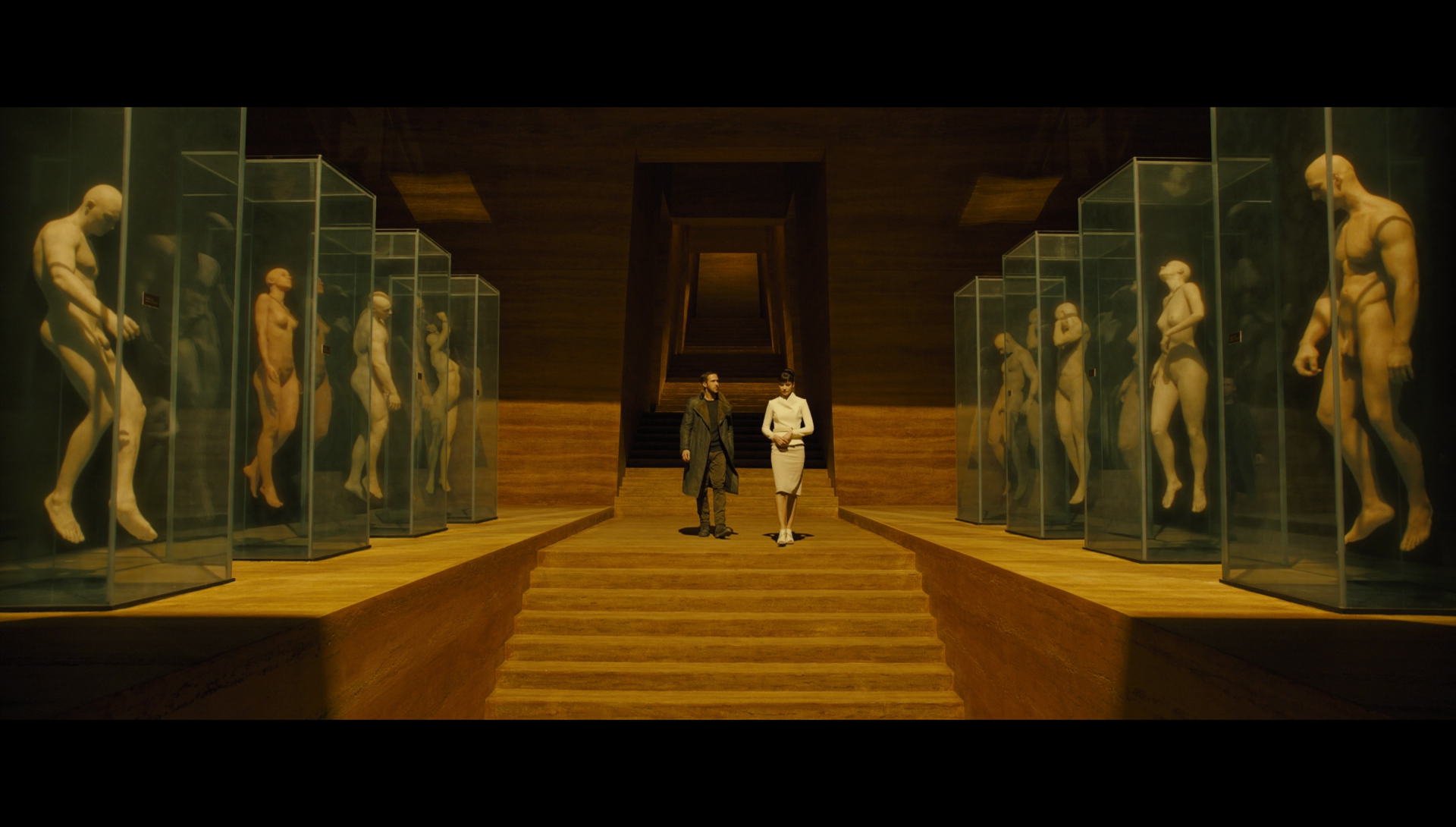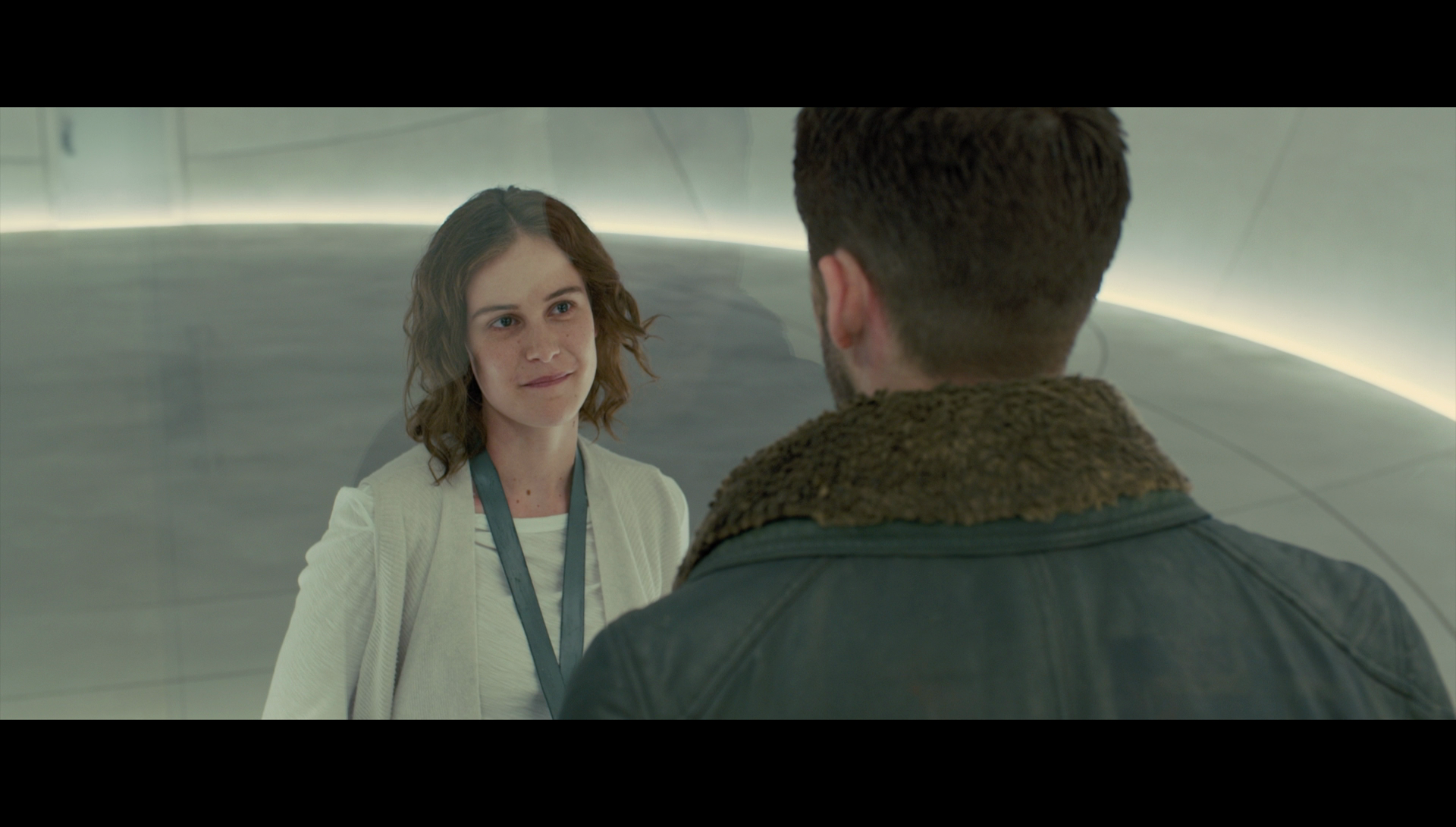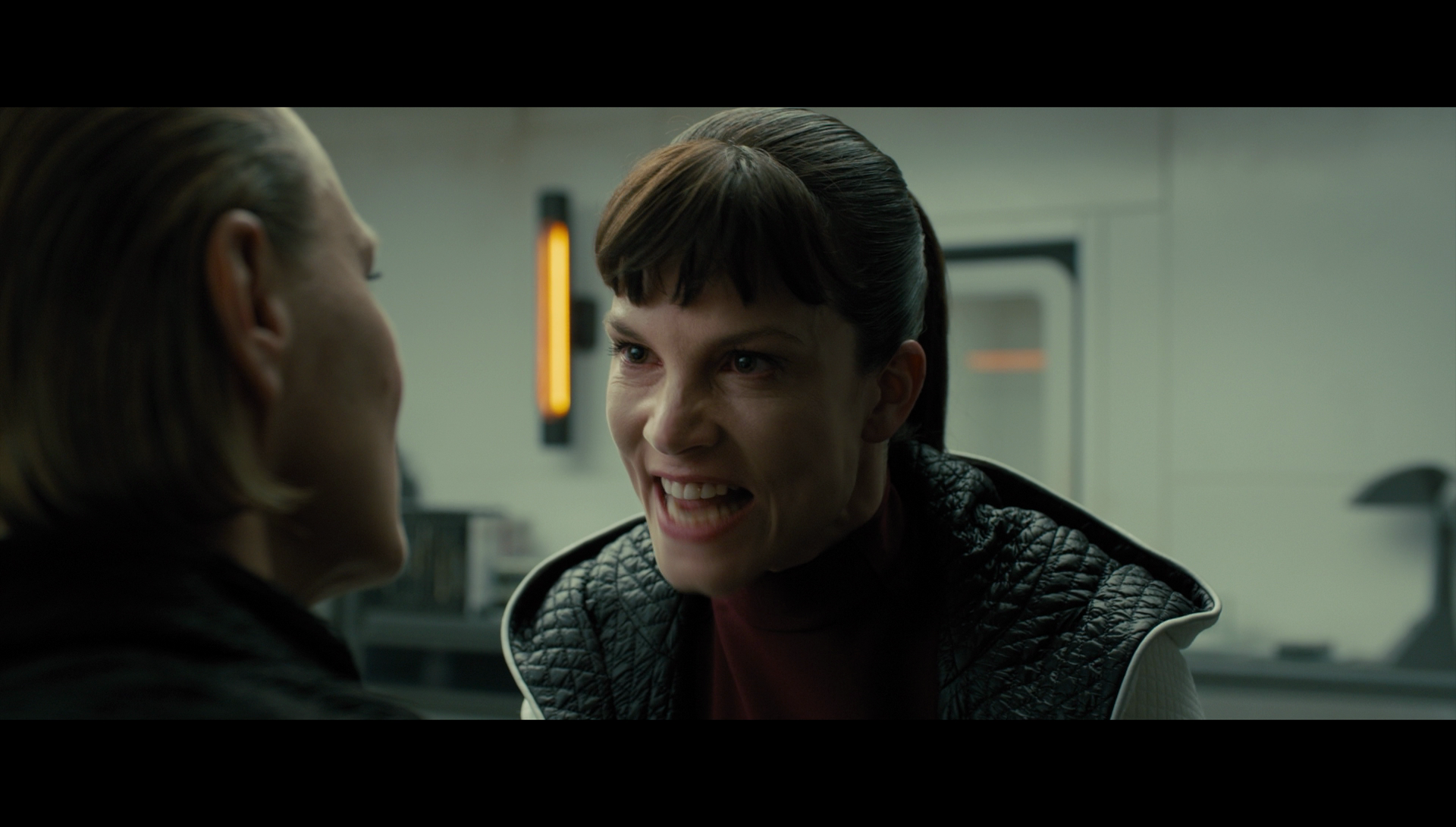Last Updated on October 6, 2020 by rob
In Los Angeles Detective K (Ryan Gosling) hunts down and kills an artificial human known as a replicant but his death leads to an astonishing discovery that threatens to upend the status between replicants and their human masters. Ordered by his boss Lieutenant Joshi (Robin Wright) to eradicate all traces of his discovery K’s investigations are shadowed by a replicant manufacturer named Wallace (Jared Leto) and his lethal assistant Luv (Sylvia Hoeks), who intend to seize the secret for their own ends.
A heartfelt, ambitious and all round satisfying sequel to 1982’s Blade Runner with a tender, soulful performance from Ryan Gosling that contrasts nicely with his character’s brute strength and the sight of Harrison Ford looking far more invigorated here than in most anything else I’ve seen him in for decades (and that includes his performance in the original). The script is a clever variation on the twin themes of Ridley Scott’s original. Once again we have the desire for freedom represented by a replicant slave (the identity of whom is best discovered for yourself) who ultimately rebels against his masters. The other major theme is the notion that replicants have souls and are capable of empathy for others.
This was the idea that Blade Runner’s author Philip K.Dick would return to time and again and BR 2049 brilliantly reworks this in two major ways. First, in a love affair between Detective K and a replicant surrogate, a sentient hologram named Joi (Ana de Armas, quite superb) who supplies companionship at home and whose sincerity and devotion to K has us wondering if this is merely a computer program at work or something more. A three way love scene in which Joi projects herself onto the body of a prostitute so she can feel K’s touch evokes something one feels all too rarely in modern movies; a genuine sense of wonder (and note the way Joi’s translucent body turns solid and three dimensional at moments of intense emotion between her and K). As much as I was taken by the Rachael/Deckard romance of the original I thought the K/Joi one beat it.
Second, in expanding on the source of replicant memories – in the shape of a memory maker named Dr. Ana Stelline (Carla Juri) – and using that to reaffirm the replicants’ innate humanity in a brilliant and emotionally resonant plot twist that I must confess I didn’t see coming at all . A related story thread involving a troubling childhood memory for K about a toy horse is no less fascinating and leads to a quite devastating moment of realisation for our hero. If you remember the Unicorn dream from the original Blade Runner and what that signified then this represents a very clever inversion indeed but it is simply impossible to discuss in more detail without giving away some major plot points. Suffice to say that by the end I could understand why Harrison Ford reportedly called this the best script he’d ever read. Gosling and Ford aside I was also impressed by the largely female supporting cast.
Robin Wright as K’s under pressure boss gets the tone just right. She’s firm but not entirely without feelings for her employee as evidenced in a lovely scene where she makes a pass at K, a moment so subtly played that you might not even notice. And Ana de Armas is such a selfless tower of strength for Gosling’s ‘tec you feel really bad when the worst happens courtesy of Sylvia Hoek’s ironically named replicant assassin, Luv. But even with Luv and her megalomaniac employer Wallace (Jared Leto) you can understand what’s driving them and at first it seems like what they’re after might be a good thing for humanity. That changes when we witness the birth of a female replicant (a fascinatingly staged moment) welcomed into the world and then cruelly dispatched by Wallace for a biological defect that not even his genius can solve.
It’s a testament to all concerned that even though Luv becomes the kind of bitch we can’t wait to see painfully die at K’s hands she retains a smidgen of our sympathy. In a terrific scene with K’s boss Luv excoriates the woman for her lack of vision in ordering K to destroy a discovery that could benefit humanity (or is she thinking solely of her kind?). Either way you can understand her impatience. Like all replicants Luv embodies that most human of instincts, the struggle to survive, something that I thought really came through in the climactic fight between her and K and which I found quite a gracious touch on the part of its director. It would have been so easy to have just treated Luv as a disposable villain to be beaten to a pulp for the audience’s delectation but the film doesn’t go that route. There’s a tenderness in the way the camera singles out Luv’s face in her final moments that surprised me.
Granted, we might not like what she’s done but we understand her desire to live. After all, it’s not her fault she’s a slave designed for a purpose she had no say in. Less successful is the character of Wallace himself. Jared Leto gives a perfectly fine performance but because his replicant creator is not at the heart of the story in the way Joe Turkel’s splendid Tyrell was in the original Blade Runner he can’t but help come across here as a rather generic Frankenstein type with delusions of Godhood. His megalomaniac character really wouldn’t look amiss in Ridley Scott’s other series, the Alien franchise and I wonder if this character was created by Scott given he reportedly had a hand in writing the original story for this. In Wallace’s defence he isn’t in more than a handful of scenes and Leto does bring to the character a silky malevolence that makes him a touch more substantial than a series of mere plot points. But it’s interesting because I got the impression that with both Wallace and the suggestion of a brewing replicant rebellion, that someone (Villeneuve? Scott?) was deliberately seeding the film with elements intended to be followed up in a sequel.
The production values and technical aspects do a stunning job of visualising this bleak, austere world (one noticeably much less crowded than in the original film but also much closer to the world described in Philip K. Dick’s novel) but they’re kept under rigidly tight control, never allowed to overwhelm the story or the characters. There are bursts of violent action but again there’s nothing that feels remotely aimed at pleasing, say, teenage males hankering for flying Spinner car chases or replicant rampages. Even though there are echoes aplenty to the first film, e.g., the weird and bizarre ‘baseline’ exam which is the original’s Voight-Kampf test updated for the newer generation of replicants, plus several supporting characters from the original who get cameos, this never feels remotely under the shadow of its predecessor. It’s too much its own thing for that.
Blade Runner 2049 is long and slow, both emotionally involving and thoughtful, bleak yet achingly romantic, and the director brings an unexpected lyrical/poetic touch to some of the imagery. There’s a lot of womb-like symbolism here in the later stages (understandable given the subject matter). I see the director of 1982’s Blade Runner, Ridley Scott, has slagged the new film off for being too long. But I can’t say I had any problem watching it at home and I wonder if Ridder’s attack might just conceal a touch of envy at what Denis Villeneuve has achieved? Personally, I think he’s made a damn fine film and one that feels almost completely outside what you would expect from the standard run of sequel/franchise movies these days. That integrity no doubt helped kill its commercial prospects at the box office but regardless the film is a knockout.
